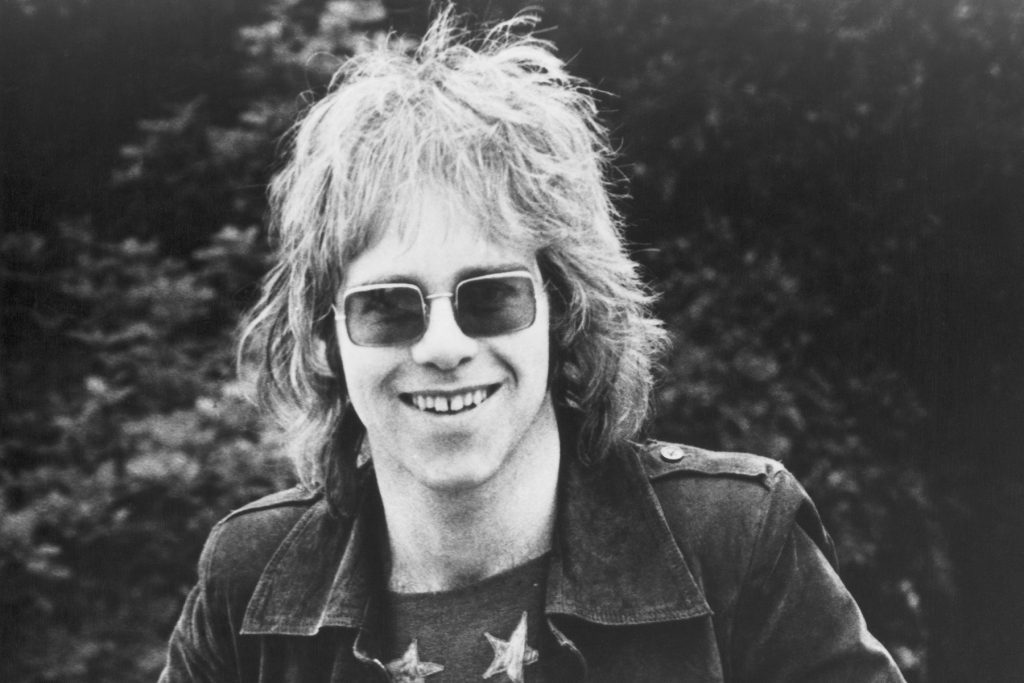
Elton John’s Eight-Disc ‘Jewel Box’ Rewrites the Story of His Epic Career
Among other things, Elton John’s sprawling new box set answers a question most of us have never even pondered: Did he have his own version of Smile? A few years after Brian Wilson had tried and failed to complete his attempted masterpiece with the Beach Boys, John considering launching his career—after playing in bands and doing sessions—with a psychedelic album, which even sported a straight-outta-Spinal-Tap title, Regimental Sgt. Zippo.
According to the copious liner notes in Jewel Box, the album was started in 1968 and never completed, and its exact contents remain “subject to conjecture.” But thanks to this new collection, we get an inkling of how John may have introduced himself to the public — and title track aside, the songs aren’t quite the Beatles knockoffs you’d expect. Instead, they hint at everything that was to come. The rainy-day moodiness of “Tartan Coloured Lady” recalls the somber artiness of his first few, terrific albums. “Turn to Me,” an arms-wide-open ballad, feels like the widescreen songs he would eventually contribute to soundtracks, and the bouncy “When I Was Tealby Abbey” hints at the rockers he would begin cranking out effortlessly.
blogherads.adq.push(function () {
blogherads
.defineSlot( ‘medrec’, ‘gpt-dsk-tab-article-inbody1-uid0’ )
.setTargeting( ‘pos’, [“mid-article”,”mid”,”in-article1″,”mid-article1″] )
.setSubAdUnitPath(“music//article//inbody1”)
.addSize([[300,250],[620,350],[2,2],[3,3],[2,4],[4,2]])
;
});
John already has one career-spanning boxed set behind him, the out-of-print To Be Continued…, but Jewel Box goes out of its way to be a very different, sometimes maddening beast. Its eight discs include a substantial chunk of unheard early material, like those Zippo tunes, but they sit alongside an even bigger batch of songs that have already been released in one form or another, either on albums or singles. Jewel Box doesn’t just clean out the closet but the whole house.
Starting with those Regimental Sgt. Zippo songs, the jewels of the box are those pre-fame recordings from the late Sixties, which take up three discs. In those years, John was something of a pop mad scientist and a radio sponge, leaping from one style to the next to see which fit the best. As revealed by the over 50 songs he created and discarded, the sheer number of them is astonishing, but so is the quality. Instead of the homemade tapes that often fill up such collections, most of these are fully or largely realized takes cut with studio musicians and even string sections.
And what a wonderfully diverse assemblage of songs they are. His first two singles, “Come Back Baby” and “Mr. Frantic,” are exuberant swinging-London pop. “Two of a Kind” has the bounce of the Four Seasons, while “Taking the Sun From My Eyes” has the pop elegance of Burt Bacharach. The songs, one after another, reveal that John’s innate sense of melody was pretty much in place from the start. It’s startling that the best of these, like the defiant “Sing Me No Sad Songs” or the ornate “Velvet Fountain,” were relegated to obscurity, but it’s also an indication of what a creative roll he was on at the dawn of his career. He could seemingly discard as many songs as he wanted, knowing full well that another dozen of equal quality were around the bend, ready to replace them.
The hits eventually arrived—and kept coming, year after year, decade after decade, with intermittent gaps–and eventually overshadowed worthy songs tucked away on his many albums. (The fact that John has already released several compilations of all those same hits, and has even played them in a Vegas show, only reinforced this impression.) To remind everyone that plenty of quality material has been forgotten or overlooked, John devotes two whole discs on Jewel Box to his favorite album cuts –his obscurity playlist, if you will. It’s a worthy mission that rescues, among others, the serial-killer song “Ticking,” the swirly “Where to Now Saint Peter,” and the elegant “Blues for Baby and Me,” which he aptly describes in the liner notes as the “strange half sister” of “Tiny Dancer.”
blogherads.adq.push(function () {
blogherads
.defineSlot( ‘medrec’, ‘gpt-dsk-tab-article-inbody2-uid1’ )
.setTargeting( ‘pos’, [“mid-article2″,”mid”,”in-article2″,”mid-article”] )
.setSubAdUnitPath(“music//article//inbody2”)
.addSize([[300,250],[300,251],[620,350],[2,4],[4,2],[3,3]])
;
});
Other choices are puzzling: Is the banal shuffle “Boogie Pilgrim” better than other Blue Moves tracks, like L.A.-rock-style “Cage the Songbird”? Then again, there’s something head-scratching about Jewel Box in general. By their very nature, box sets are for the diehards, but will even the ultimate Elton loyalists want two of the other discs here, which are devoted to every B-side from every single he’s released since 1976? Some of them—like 2001’s “Did Anybody Sleep with Joan of Arc,” which goes out its way to recall his Madman Across the Water era—are equal to or better than the songs they supported, and leftovers like intentionally grating instrumental “Choc Ice Goes Mental” are worth a listen. But many, like the Beach Boys homage “Take Me Down to the Ocean,” are hampered by dated production, and some were clearly B-sides for a reason.
As a psychological study, Jewel Box is fascinating; it’s John imagining an alternate universe in which “(Gotta Get a) Meal Ticket,” and not “The Bitch Is Back,” is his most beloved rocker, or “I Think I’m Going to Kill Myself” tops “Crocodile Rock” as a crowd-pleasing jaunty rocker. A disc of his personal favorites, his alternate hits, includes “All the Nasties,” which he says was written about his fears of coming out in the early Seventies. This particular musical shrink session (complete with a lavish booklet that includes handwritten lyrics, vintage ads, pictures sleeves of his singles and such) will set you back over $100. But in both his stage costumes and the sheer volume of music he’s released over the course of 50 years, John has never been ashamed of going over the top.




